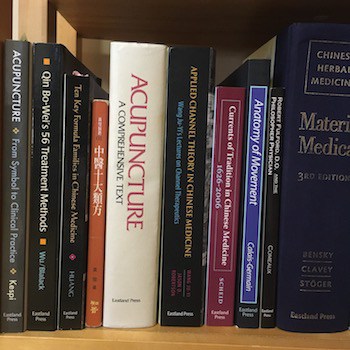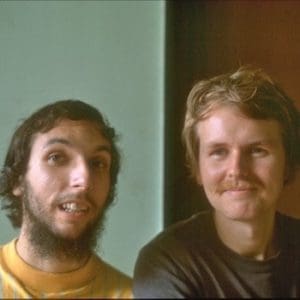[et_pb_section fb_built=”1″ admin_label=”section” _builder_version=”4.16″ custom_css_main_element=”.widget{|| margin-top: 20px !important;||}||” global_colors_info=”{}”][et_pb_row admin_label=”row” _builder_version=”4.16″ background_size=”initial” background_position=”top_left” background_repeat=”repeat” custom_width_px=”1730px” global_colors_info=”{}”][et_pb_column type=”4_4″ _builder_version=”4.16″ background_position=”top_left” custom_padding=”|||” global_colors_info=”{}” custom_padding__hover=”|||”][et_pb_code _builder_version=”4.27.4″ _module_preset=”default” global_colors_info=”{}”]
[/et_pb_code][/et_pb_column][/et_pb_row][et_pb_row column_structure=”2_3,1_3″ _builder_version=”4.16″ background_size=”initial” background_position=”top_left” background_repeat=”repeat” global_colors_info=”{}”][et_pb_column type=”2_3″ _builder_version=”4.16″ custom_padding=”|||” global_colors_info=”{}” custom_padding__hover=”|||”][et_pb_text admin_label=”intro to show” _builder_version=”4.27.4″ text_font_size_tablet=”51″ text_line_height_tablet=”2″ header_font_size_tablet=”51″ header_line_height_tablet=”2″ global_colors_info=”{}”]
History isn’t always something you study from a distance. Sometimes, you find yourself in the middle of it—shaped by the events, people, and unexpected turns that unfold around you. Those moments influence destiny, and over time, they become the foundation for how you see and practice your work.
In this conversation with Craig Mitchell, we trace those threads through his unexpected entry into Chinese medicine during the HIV/AIDS crisis, the formative years at ACTCM, and the serendipitous encounters that led him to Taiwan and the translation of the Shang Han Lun. His path weaves together scholarship, clinical practice, and the kinds of opportunities that appear when you’re willing to say yes.
Listen into this discussion as we explore the realities of practicing during a public health crisis, surprising opportunities that arose when pursuing medicine in Taiwan, the challenges and losses inherent in the process of translation, and why flexibility in clinical thinking is essential for treating real people in the real world.
[/et_pb_text][et_pb_code disabled_on=”||on” admin_label=”Pre Roll Banner One” _builder_version=”4.17.6″ text_orientation=”center” global_colors_info=”{}”]
[/et_pb_code][et_pb_text admin_label=”highlights” _builder_version=”4.27.4″ text_font_size_tablet=”51″ text_line_height_tablet=”2″ header_font_size_tablet=”51″ header_line_height_tablet=”2″ global_colors_info=”{}”]In This Conversation We Discuss:
- How the HIV/AIDS crisis in the late 1980s sparked Craig’s first encounters with Chinese herbal medicine.
- Studying at ACTCM in the early 1990s and navigating the cultural differences of San Francisco’s counterculture scene.
- Treating seriously ill patients during a Ryan White Grant program and making house calls to those in end-of-life care.
- The clinical realities of reusing and autoclaving acupuncture needles before disposable needles became standard.
- Moving to Taiwan to study Chinese language and immersion in a clinical and cultural environment.
- Meeting Nigel Wiseman and collaborating with him and Feng Ye on a comprehensive English-language translation of the Shang Han Lun.
- The challenges and inevitable losses involved in translating classical Chinese medical texts into English.
- How language study deepens understanding of Chinese medicine and shifts clinical perspective.
- Reflections on shifts in acupuncture education over the past three decades and concerns about clinical readiness of graduates.
- The importance of adaptability and using multiple methods to meet the needs of different patients.
- Avoiding ideological rigidity in clinical practice and drawing from diverse traditions within East Asian medicine.
- The role of chance, timing, and willingness in shaping both scholarship and clinical careers.
[/et_pb_text][et_pb_text admin_label=”About show guest” _builder_version=”4.27.4″ text_font_size_tablet=”51″ text_line_height_tablet=”2″ header_font_size_tablet=”51″ header_line_height_tablet=”2″ global_colors_info=”{}”]
Take your patients seriously, but don’t take yourself too seriously.
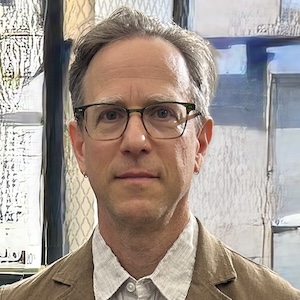 Craig Mitchell, Ph.D, L.Ac
Craig Mitchell, Ph.D, L.Ac
My journey into East Asian medicine began at the American College of TCM, which I graduated from in 1993. From 2003-2006, I studied under Dr. Nie Hui-Min in Beijing, earning my PhD at China Academy of TCM.
A significant part of my work involves bridging the gap between ancient texts and modern practice. My translation of the Shang Han Lun, published in 1999 with Feng Ye and Nigel Wiseman, aims to make this foundational text accessible to contemporary practitioners. Alongside this, I’ve translated numerous modern Chinese medical texts, including A Walk Along the River by Yu Guo-Jun, contributing to a broader understanding of Traditional East-Asian Medicine.
As President of the Seattle Institute of East Asian Medicine, I’m dedicated to educating the next generation of practitioners. My teaching encompasses a wide range of subjects, including medical Chinese, Shang Han Lun, Chinese herbal medicine, tui na, and qi gong. My goal is to empower students to become skilled and compassionate practitioners, ensuring the continued vitality of Traditional East Asian medicine.
[/et_pb_text][et_pb_code disabled_on=”||on” admin_label=”Pre Roll Banner Two” _builder_version=”4.17.6″ text_orientation=”center” global_colors_info=”{}”]
[/et_pb_code][et_pb_text admin_label=”Links and Resources add link to FB page” _builder_version=”4.27.4″ global_colors_info=”{}”]Links and Resources
You can visit Craig at the Seattle Institute of East Asian Medicine.
[/et_pb_text][et_pb_code admin_label=”Subscribe To Podcast” _builder_version=”4.17.6″ _module_preset=”default” global_colors_info=”{}”]
Subscribe To This Podcast In Your Favourite Player
[/et_pb_code][et_pb_text admin_label=”Share on social media” _builder_version=”4.16″ module_alignment=”left” text_font_size_tablet=”51″ text_line_height_tablet=”2″ header_font_size_tablet=”51″ header_line_height_tablet=”2″ border_style=”solid” global_colors_info=”{}”]
Share this podcast with your friends!
[/et_pb_text][et_pb_code disabled_on=”||on” admin_label=”Pre Roll Banner Three” _builder_version=”4.17.6″ text_orientation=”center” global_colors_info=”{}”]
[/et_pb_code][et_pb_code disabled_on=”||on” admin_label=”Mid Roll Banner Four” _builder_version=”4.17.6″ text_orientation=”center” global_colors_info=”{}”] [/et_pb_code][et_pb_code disabled_on=”||on” admin_label=”Extro Banner Five” _builder_version=”4.17.6″ text_orientation=”center” global_colors_info=”{}”] [/et_pb_code][et_pb_code disabled_on=”||on” admin_label=”Extro Banner Legacy” _builder_version=”4.17.6″ text_orientation=”center” global_colors_info=”{}”] [/et_pb_code][/et_pb_column][et_pb_column type=”1_3″ _builder_version=”4.16″ custom_padding=”|||” global_colors_info=”{}” custom_padding__hover=”|||”][et_pb_text disabled_on=”on|on|off” admin_label=”5x Side bar ads” module_id=”sidebar_ad” _builder_version=”4.17.6″ text_font=”|600|||||||” background_color=”#f5f5f5″ text_orientation=”center” custom_padding=”||||false|false” border_width_all=”1px” global_colors_info=”{}”]Support for Qiological Comes From
[/et_pb_text][/et_pb_column][/et_pb_row][/et_pb_section]
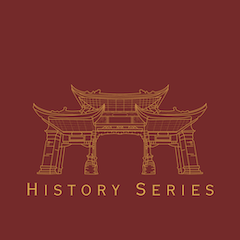

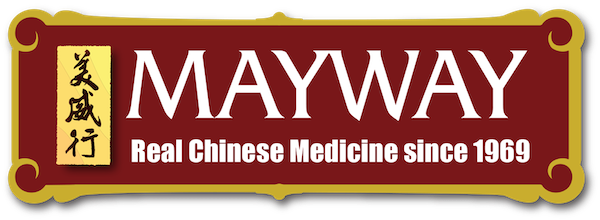



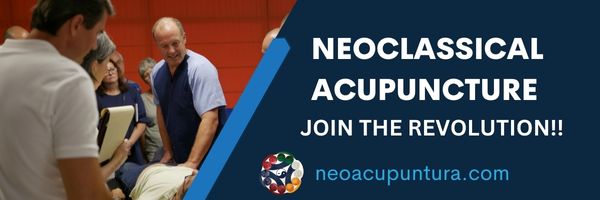




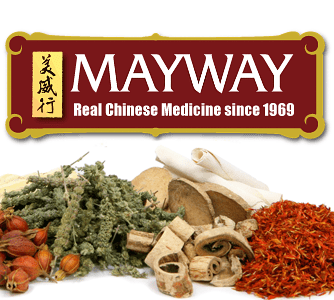
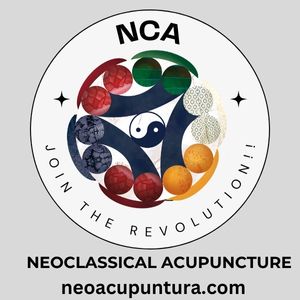


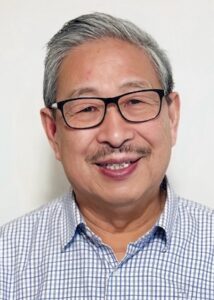 Dr. Qiang Cao, ND, L.Ac
Dr. Qiang Cao, ND, L.Ac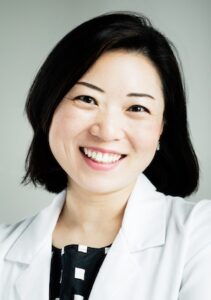 Dr. Yun Xiao, DAc, L.Ac
Dr. Yun Xiao, DAc, L.Ac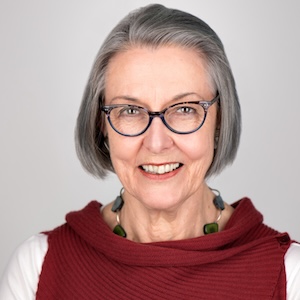
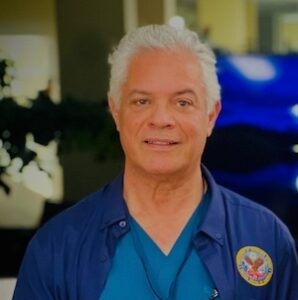 Jacques MoraMarco is the Academic Dean at Emperor’s College in Culver City, California, the oldest school of Traditional East Asian Medicine in California. Since 2023, he has been supervising doctoral students who are providing acupuncture in the post-traumatic stress disorder (PTSD) clinic at the VA Greater Los Angeles Health System, which serves over 80,000 veterans in the county of Los Angeles. He previously served as a clinical supervisor at Being Alive, a nonprofit that provides medical and social services to those with HIV/AIDS.
Jacques MoraMarco is the Academic Dean at Emperor’s College in Culver City, California, the oldest school of Traditional East Asian Medicine in California. Since 2023, he has been supervising doctoral students who are providing acupuncture in the post-traumatic stress disorder (PTSD) clinic at the VA Greater Los Angeles Health System, which serves over 80,000 veterans in the county of Los Angeles. He previously served as a clinical supervisor at Being Alive, a nonprofit that provides medical and social services to those with HIV/AIDS.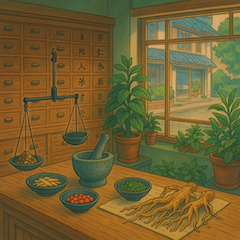
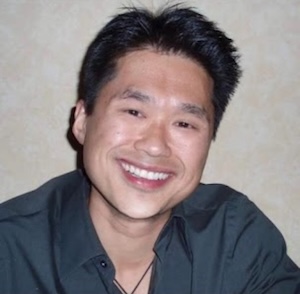 Dr. Thomas Leung is uniquely qualified as both a licensed pharmacist and acupuncturist in New York State. He holds a Bachelor of Science in Pharmacy from the State University of New York at Buffalo, as well as a Bachelor of Professional Studies and a Doctorate in Traditional Oriental Medicine from Pacific College of Oriental Medicine.
Dr. Thomas Leung is uniquely qualified as both a licensed pharmacist and acupuncturist in New York State. He holds a Bachelor of Science in Pharmacy from the State University of New York at Buffalo, as well as a Bachelor of Professional Studies and a Doctorate in Traditional Oriental Medicine from Pacific College of Oriental Medicine. 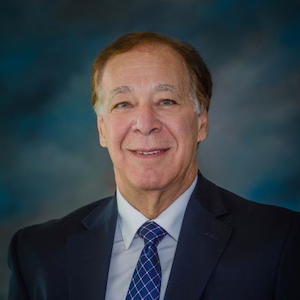 Steven L. Rosenblatt, M.D., PhD, L.Ac, is licensed as a medical doctor in California and Hawaii. He is residency trained in Family Practice at Kaiser Hospital, Riverside, California and is currently board certified in Urgent Care Medicine. He graduated with a PhD in research from UCLA and then attended the prestigious Hong Kong Acupuncture College. He was the first Westerner licensed to practice Acupuncture in the U.S. Dr. Rosenblatt was the Founder and past President of the California Acupuncture College. He was the co-founder and Clinical Director of the UCLA Acupuncture Clinic, and he is National Board Certified in Acupuncture (NCCAOM) and in Oriental Medicine (NCCAOM).
Steven L. Rosenblatt, M.D., PhD, L.Ac, is licensed as a medical doctor in California and Hawaii. He is residency trained in Family Practice at Kaiser Hospital, Riverside, California and is currently board certified in Urgent Care Medicine. He graduated with a PhD in research from UCLA and then attended the prestigious Hong Kong Acupuncture College. He was the first Westerner licensed to practice Acupuncture in the U.S. Dr. Rosenblatt was the Founder and past President of the California Acupuncture College. He was the co-founder and Clinical Director of the UCLA Acupuncture Clinic, and he is National Board Certified in Acupuncture (NCCAOM) and in Oriental Medicine (NCCAOM).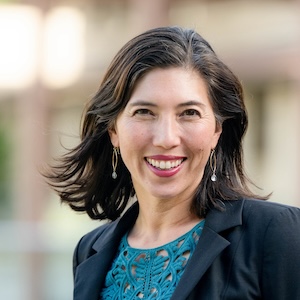 Tamara Venit-Shelton, Ph.D.
Tamara Venit-Shelton, Ph.D.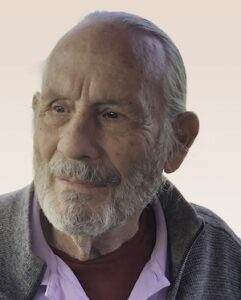 I’m an old hippie. After a year in jail for marijuana, I was tossed out of college with a BA in Humanities. Because of my history of draft resistance, psychedelic adventuring and Vietnam protests, the one job I could get was with a start-up computer firm. I became very well paid and studied technical writing, computer programming and management at graduate school.
I’m an old hippie. After a year in jail for marijuana, I was tossed out of college with a BA in Humanities. Because of my history of draft resistance, psychedelic adventuring and Vietnam protests, the one job I could get was with a start-up computer firm. I became very well paid and studied technical writing, computer programming and management at graduate school. 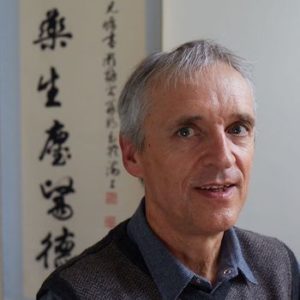 Volker Scheid, Ph.D
Volker Scheid, Ph.D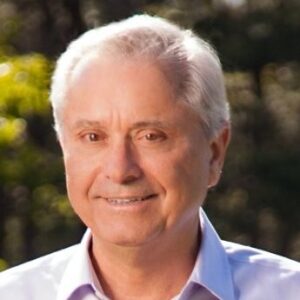 Bill Egloff, Entrepreneur
Bill Egloff, Entrepreneur 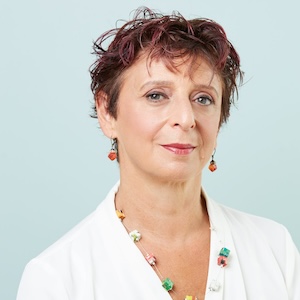 I am an acupuncturist, herbalist, businesswoman, and author. I was raised in a health food store in Brooklyn, NY. When I was 8, I cartwheeled 5 miles from Greenwich Village through Soho and Chinatown and across the Brooklyn Bridge.
I am an acupuncturist, herbalist, businesswoman, and author. I was raised in a health food store in Brooklyn, NY. When I was 8, I cartwheeled 5 miles from Greenwich Village through Soho and Chinatown and across the Brooklyn Bridge.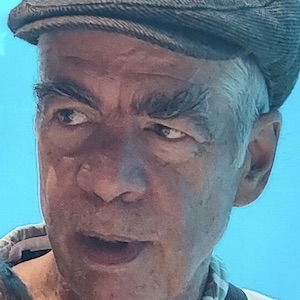 Paul Karsten, Ph.D, L.Ac
Paul Karsten, Ph.D, L.Ac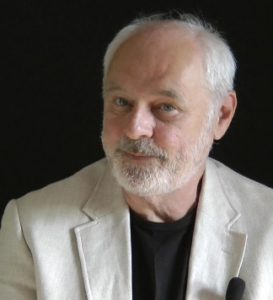 Charlie Buck
Charlie Buck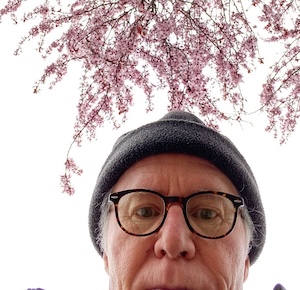 Randal Barolet. L.Ac
Randal Barolet. L.Ac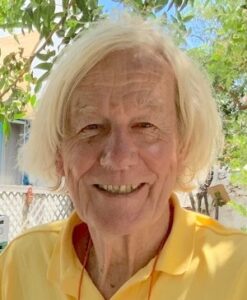 Julian Scott, L.Ac, Ph.D
Julian Scott, L.Ac, Ph.D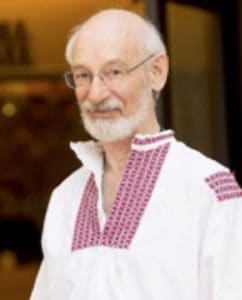 Peter Eckman, M.D.
Peter Eckman, M.D.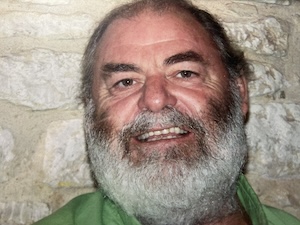 Stuart Watts. L.Ac, DOM
Stuart Watts. L.Ac, DOM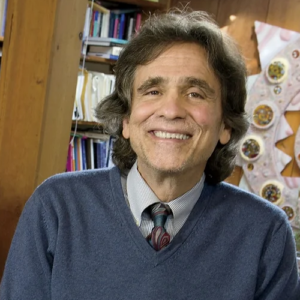 Ted Kaptchuk
Ted Kaptchuk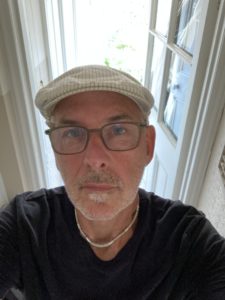 I have spent over fifty years working in the field of health promotion. I began by co-founding a natural foods business (infinity foods.co.uk), then studied acupuncture, Chinese medicine and qigong.
I have spent over fifty years working in the field of health promotion. I began by co-founding a natural foods business (infinity foods.co.uk), then studied acupuncture, Chinese medicine and qigong. 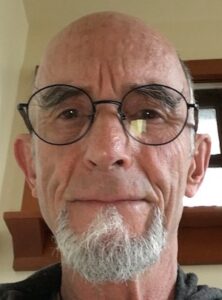
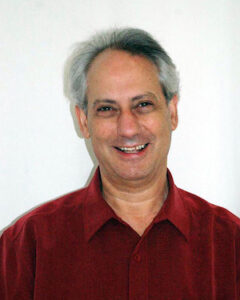 JAKE PAUL FRATKIN, OMD, L.Ac. trained in Korean and Japanese acupuncture since1975, and Chinese herbal medicine since 1982, and has studied and taught qi gong and Yang family Taijiquan since 1974. He is the recipient of Acupuncturist of the Year 1999,by the AAAOM, and Teacher of the Year, 2006, American Association of Teachers ofAcupuncture and Oriental Medicine (AATAOM).
JAKE PAUL FRATKIN, OMD, L.Ac. trained in Korean and Japanese acupuncture since1975, and Chinese herbal medicine since 1982, and has studied and taught qi gong and Yang family Taijiquan since 1974. He is the recipient of Acupuncturist of the Year 1999,by the AAAOM, and Teacher of the Year, 2006, American Association of Teachers ofAcupuncture and Oriental Medicine (AATAOM).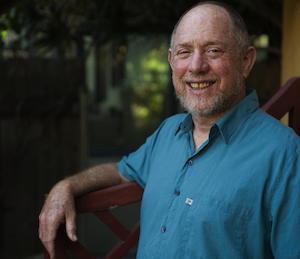 Rick Gold, Founder
Rick Gold, Founder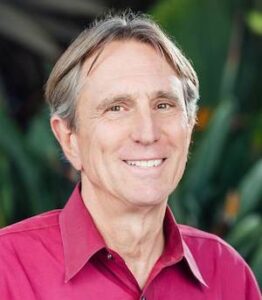 John Scott is a Doctor of Oriental Medicine currently in practice in Albuquerque, New Mexico. He has been in private practice since 1982. He is the founder and president ofGolden Flower Chinese Herbs Inc.. John has been active in promoting oriental medicine on a local, state, national and international level.
John Scott is a Doctor of Oriental Medicine currently in practice in Albuquerque, New Mexico. He has been in private practice since 1982. He is the founder and president ofGolden Flower Chinese Herbs Inc.. John has been active in promoting oriental medicine on a local, state, national and international level. 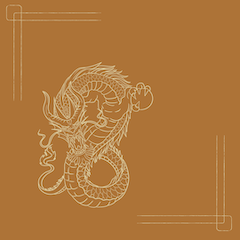
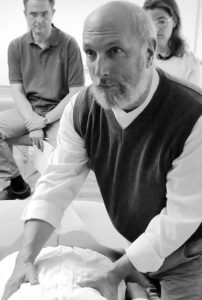 I’ve been interested in things East Asian since I was a boy and stumbled into Traditional East Asian Medicine [TEAM] by chance in the early 1970’s. At the time it was not only very hard to find a place to study, it was even hard to know what or how to study.
I’ve been interested in things East Asian since I was a boy and stumbled into Traditional East Asian Medicine [TEAM] by chance in the early 1970’s. At the time it was not only very hard to find a place to study, it was even hard to know what or how to study.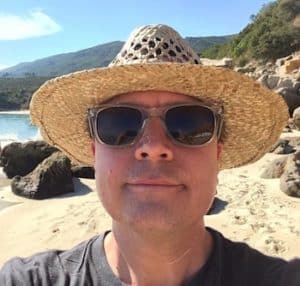 Jason Robertson, L.Ac
Jason Robertson, L.Ac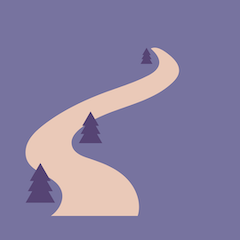
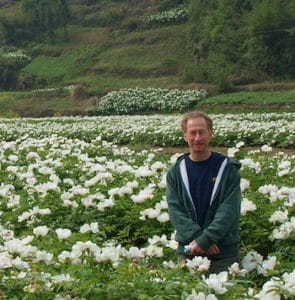
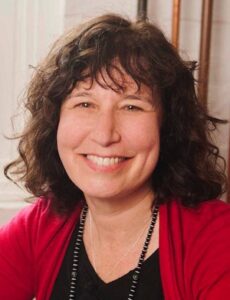 Leta Herman
Leta Herman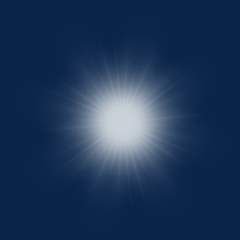
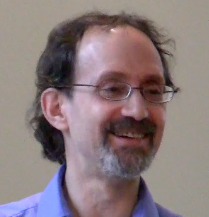 I have spent the past 20 years developing, refining and teaching a treatment modality called Acu-Current Therapy. It increases joint range of motion, regulates sinew and muscle elasticity, increases blood profusion to affected areas and accelerates healing time.
I have spent the past 20 years developing, refining and teaching a treatment modality called Acu-Current Therapy. It increases joint range of motion, regulates sinew and muscle elasticity, increases blood profusion to affected areas and accelerates healing time.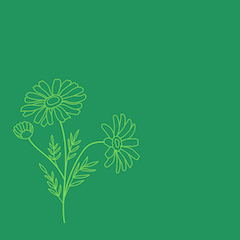
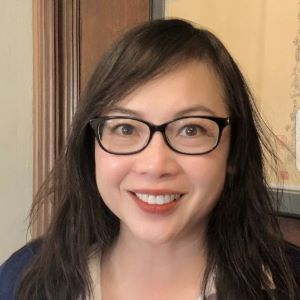 Yvonne Lau, Business Owner
Yvonne Lau, Business Owner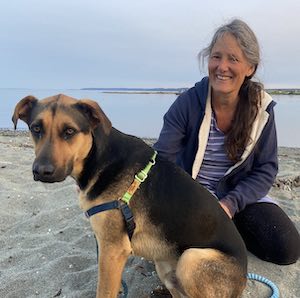 Sabine Wilms, PhD, is the author and translator of more than a dozen books on Chinese medicine. In addition to writing, translating, and publishing her work through her company
Sabine Wilms, PhD, is the author and translator of more than a dozen books on Chinese medicine. In addition to writing, translating, and publishing her work through her company 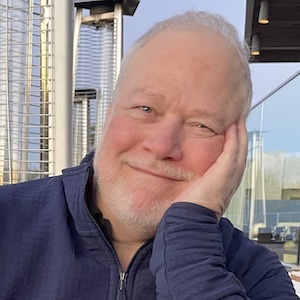 John Myerson, P.hD, L.Ac
John Myerson, P.hD, L.Ac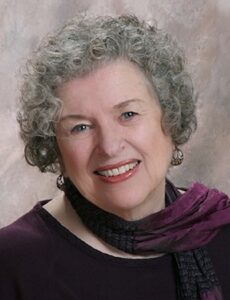 Tracy Steward, L.Ac
Tracy Steward, L.Ac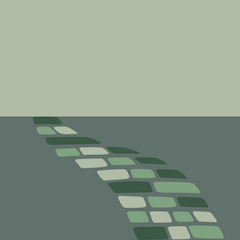
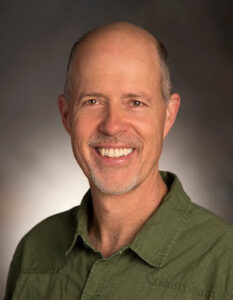 Anthony Von der Muhll
Anthony Von der Muhll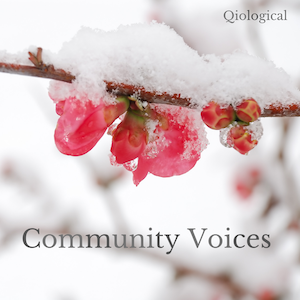
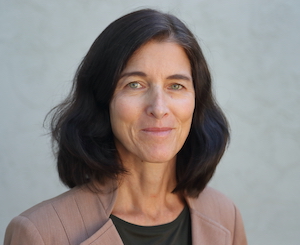 Rachel Pagones is an acupuncturist, educator and author with a background in journalism. She was department chair of the transitional doctorate program of acupuncture and Chinese medicine at Pacific College of Health and Science in San Diego – where she taught clinical research design, evidence-informed practice, and preventive medicine and public health and supervised a free acupuncture clinic for older adults – before moving to the UK in late 2021. She currently lectures in TCM Academy’s Oncology Acupuncture International Certificate Program.
Rachel Pagones is an acupuncturist, educator and author with a background in journalism. She was department chair of the transitional doctorate program of acupuncture and Chinese medicine at Pacific College of Health and Science in San Diego – where she taught clinical research design, evidence-informed practice, and preventive medicine and public health and supervised a free acupuncture clinic for older adults – before moving to the UK in late 2021. She currently lectures in TCM Academy’s Oncology Acupuncture International Certificate Program. Elizabeth Sommers PhD MPH Lic Ac is based in the Integrative Medicine and Health Disparities Program of Boston Medical Center. She is an assistant professor at Boston University School of Medicine in Family Medicine. She has published in the areas of acupuncture detoxification, health economics and HIV/AIDS.
Elizabeth Sommers PhD MPH Lic Ac is based in the Integrative Medicine and Health Disparities Program of Boston Medical Center. She is an assistant professor at Boston University School of Medicine in Family Medicine. She has published in the areas of acupuncture detoxification, health economics and HIV/AIDS.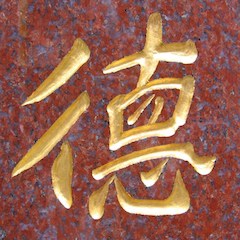
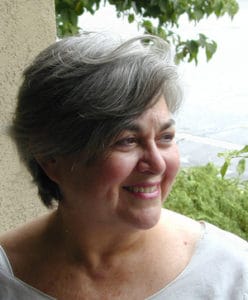 Susan Paul, L.Ac
Susan Paul, L.Ac